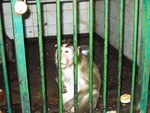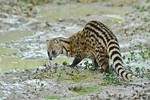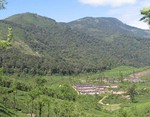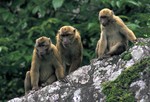Debapriyo Chakraborty
Data-driven solutions to emerging infectious disease problems
Biography
Central aim of my research is to understand the processes that intersect ecology, evolution and epidemiology of pathogens at the wildlife-livestock-human interface; and application of that understanding to forecast disease emergence, transmission, evaluate existing intervention strategies and develop One Health strategies.
I was formerly a Senior Research Scientist at EcoHealth Alliance, a global health non-profit based in New York and a Fulbright visiting scholar at Duke University, North Carolina.
I received my PhD from Manipal University, India. My postdoctoral research topics included wildlife parasite ecology, ecology of urbanisation, disease modelling and viral surveillance.
Interests
- Host-pathogen interactions
- Emerging infectious diseases
- Ecology of urbanisation
- Statistical modelling
- One health strategies




